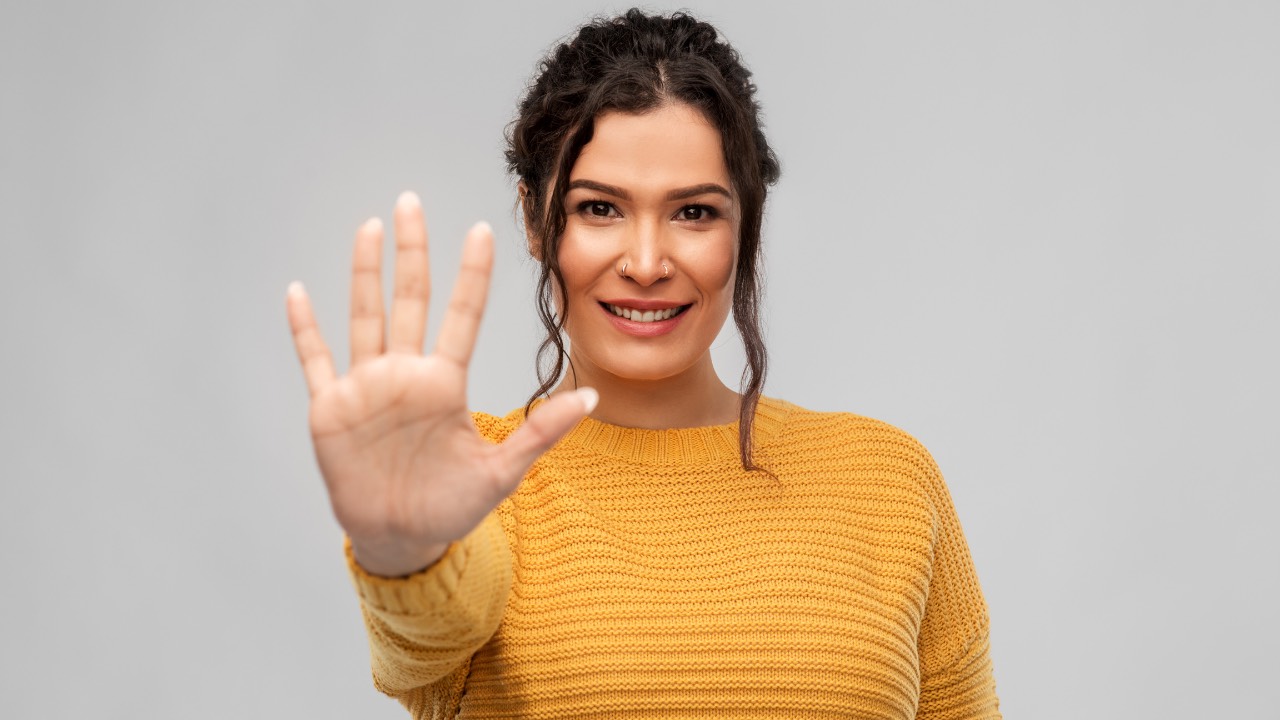5 Alcohol Myths That Might Be Keeping You Stuck (And the Truth That Sets You Free)
Oct 04, 2025
For years, you've heard that a glass of wine helps you unwind after stressful days. That social events aren't fun without drinking. That moderate drinking is actually good for your health. These "truths" are so embedded in our culture that questioning them feels almost rebellious.
But what if everything you've been told about alcohol - especially the messages targeting women - isn't actually true? What if the very beliefs that make your drinking feel normal and acceptable are the same beliefs keeping you stuck in patterns that drain your energy, disrupt your sleep, and prevent you from feeling like your best self? By the end of this post, you'll understand five pervasive myths that might be holding you hostage, the research-backed reality behind each one, and why recognizing these lies is the first step toward genuine freedom.
Myth #1: "You Need Alcohol to Unwind After Stressful Days"
This might be the most dangerous myth because it feels so true in the moment. You've had an overwhelming day - work deadlines, family demands, endless responsibilities - and that first sip of wine genuinely seems to take the edge off. Your shoulders drop, your breathing slows, and for a few minutes, the stress feels manageable.
But here's what's actually happening: alcohol initially suppresses your cortisol (stress hormone), creating that temporary feeling of relaxation. Then, 12-24 hours later, your cortisol rebounds higher than before, creating a state of chronic stress that requires more alcohol to manage. You're not actually reducing stress; you're creating a cycle where you need wine to feel normal because yesterday's wine elevated today's baseline anxiety.
The research is clear: regular alcohol consumption interferes with your body's natural stress response system, making you less resilient to stress over time. Your sleep quality deteriorates (despite alcohol making you fall asleep faster), which further reduces your capacity to handle daily pressures. The "relaxation" is an illusion that comes with a significant physiological cost.
Real stress relief - the kind that actually builds resilience rather than requiring daily management - comes from activities that genuinely restore your nervous system: movement, nature, creativity, connection, rest. When you remove alcohol's interference, your body's innate ability to decompress and recover strengthens dramatically. Many women are shocked to discover that their baseline stress levels drop significantly within weeks of addressing their relationship with alcohol.
The truth? Real stress relief builds your capacity to handle life's challenges. Alcohol just postpones the stress until tomorrow while making you less equipped to handle it.
Myth #2: "Social Events Aren't Fun Without Drinking"
This belief keeps countless women trapped because the fear of boring social experiences feels unbearable. You've spent decades associating celebrations, gatherings, and connection with alcohol. The idea of navigating these situations without your social lubricant feels anxiety-inducing at best, impossible at worst.
But consider what "fun" actually means when you're drinking. You're slightly impaired, your memory of conversations is fuzzy, you're repeating yourself without realizing it, and your genuine personality is dampened rather than enhanced. The laughter feels louder but the connections feel shallower. You think you're being hilarious, but you're actually just less aware of social cues and more willing to say things you might regret.
Here's what actually happens at social events when you're alcohol-free: you remember every meaningful conversation and genuine moment of connection. Your humor and wit - the qualities that make you YOU - aren't dependent on alcohol; they're actually sharper with clarity. You can leave when you want to, not when you're too impaired to drive or when your energy crashes from alcohol's depressive effects.
The relationships that deepen without alcohol as the centerpiece reveal themselves to be based on genuine compatibility, shared values, and authentic appreciation rather than shared intoxication. Some connections may fade (which can feel painful but is actually clarity), while others become more meaningful than they ever were over wine.
The most surprising discovery for many women is that social situations often become MORE enjoyable without alcohol - not immediately, but once you've developed confidence in your sober social skills and realized that your personality was never created by wine in the first place.
The truth? The most meaningful social experiences happen when you're fully present, fully yourself, and fully able to remember what made them special.
Myth #3: "A Glass of Wine Is Good for Your Health"
This myth has been so thoroughly debunked by recent research that it's almost embarrassing how long the "wine is healthy" narrative persisted. But the belief is so culturally entrenched - especially the idea that red wine's antioxidants make it beneficial - that many people still cite it as justification for daily drinking.
Let's be clear: recent comprehensive studies show that NO amount of alcohol is beneficial for health. Zero. The supposed cardiovascular benefits that older research suggested have been thoroughly discredited when controlling for other lifestyle factors. Those antioxidants in red wine? You get exponentially more from eating actual grapes, berries, or any colorful vegetable, without the toxic effects of alcohol.
For women specifically, alcohol's health impacts are particularly problematic. It disrupts hormone balance at every stage of life but especially during perimenopause and menopause when hormonal stability is already challenged. It interferes with sleep architecture, preventing the deep restorative stages where your body repairs itself and regulates hormones. It creates inflammation that accelerates aging and exacerbates joint pain, skin issues, and cognitive decline.
The research on alcohol and women's health is actually quite alarming: increased risk of breast cancer (even at moderate consumption levels), accelerated bone density loss, increased likelihood of depression and anxiety disorders, and significant interference with medication effectiveness. The list goes on.
When you remove alcohol, the health improvements often surprise women with their speed and significance: sleep quality transforms, skin clears and brightens, inflammation decreases, mental clarity sharpens, energy stabilizes, and weight management becomes easier. These aren't minor improvements, they're life-changing shifts in how you feel in your body every single day.
The truth? What's been marketed as "healthy" is actually just clever marketing by an industry with a vested interest in your continued consumption.
Myth #4: "You're Too Old to Change Your Relationship With Alcohol"
This insidious myth convinces women that their drinking patterns are too ingrained, that they've been doing this too long to change now, that brain plasticity and habit modification are only possible for younger people. It's a lie that keeps women stuck in their 40s, 50s, 60s and beyond, resigned to patterns that are diminishing their quality of life.
Neuroscience tells a completely different story: your brain maintains neuroplasticity - the ability to form new neural pathways and change established patterns - throughout your entire life. In fact, midlife offers unique advantages for transformation that younger years don't: more life experience, deeper self-awareness, clearer priorities, and often more resources and autonomy to support significant change.
Many women (me included!) describe addressing their relationship with alcohol in midlife as the most empowering decision of their adult lives. Not because it was easy, but because it represented choosing themselves, honoring their wisdom, and refusing to accept diminishment as an inevitable part of aging. The confidence that comes from successfully changing a deeply ingrained habit transfers into every other area of life.
Midlife transformation looks different than young adult change, but it's often more sustainable because it's built on self-knowledge rather than external pressure. You're not trying to become someone different; you're finally removing what's been preventing you from being fully yourself. You have decades of experience recognizing what doesn't work, which makes identifying what does work much clearer.
The women who make this change in midlife often report feeling like they've reclaimed a version of themselves they thought was lost to aging - the energy, clarity, confidence, and vitality they remember from their younger years, but with the wisdom and perspective they've gained over decades of living.
The truth? It's never too late to become who you're meant to be. Midlife isn't the end of possibility -it's often the beginning of your most authentic chapter.
Myth #5: "You Have to Hit Rock Bottom to Address Your Drinking"
This myth is particularly harmful because it convinces women that unless they've lost their job, relationship, or health to alcohol, they don't have a "real" problem worth addressing. It frames seeking help or making changes as something reserved for people in crisis, not for functioning women who simply notice that their relationship with alcohol might not be serving them.
The reality couldn't be more different: you don't need a dramatic crisis to make positive changes in your life. In fact, preventive action - addressing patterns before they become catastrophic - is a sign of wisdom and self-awareness, not weakness or overreaction. The women who question their drinking before it creates major problems are practicing excellent self-care and honoring their intuition, not being dramatic.
Many successful alcohol-free journeys begin with curiosity rather than catastrophe. "I wonder if I'd sleep better without wine." "I'm noticing that I never skip my nightly glass anymore." "I feel more anxious the day after drinking." These small observations, honored and explored rather than dismissed, often lead to profound positive transformation.
The "rock bottom" narrative also ignores a fundamental truth: rock bottoms are socially constructed. For one woman, rock bottom might be a DUI or health crisis. For another, it might be realizing she can't remember the last evening she felt fully present with her family, or noticing that she's organized her entire life around when and where she can drink. Your rock bottom is wherever you decide to stop digging, and deciding that before external consequences force the decision is actually the healthiest choice.
Small concerns today genuinely can prevent bigger problems tomorrow. The intuition that something isn't quite right about your relationship with alcohol deserves attention and exploration, not dismissal because you haven't experienced dramatic consequences yet.
The truth? The best time to examine your relationship with alcohol is before you "have to"—when you're still choosing from a place of curiosity and self-care rather than reacting to crisis.
The Real Story: What's Actually True
Now that we've dismantled these five pervasive myths, let's talk about what IS true - the reality that gets buried under cultural messaging designed to keep you consuming.
Your intuition about alcohol is probably right. If you're questioning your relationship with drinking, if something feels off, if you're noticing impacts on your sleep, mood, energy, or health - that awareness is valuable intelligence, not neurosis. Trust it.
Questioning your relationship with alcohol is a sign of growth and self-awareness, not a problem or character flaw. Women who examine their drinking patterns honestly are engaging in mature self-reflection that should be celebrated, not pathologized. You're not "overreacting" to be curious about how a substance affects you.
You deserve to feel vibrant, clear-headed, and energized in your daily life. Settling for foggy mornings, persistent low-level anxiety, disrupted sleep, and diminished vitality because "everyone drinks" is accepting far less than you deserve. Your body's signals that alcohol isn't serving you are worth honoring.
There's a whole community of women discovering life beyond these myths - women who are thriving, connecting authentically, managing stress effectively, and creating lives that feel genuinely theirs rather than performances of what midlife "should" look like. You're not alone in questioning these cultural narratives.
Your best years can absolutely be ahead of you. The story that your vitality, possibility, and transformation potential decline with age is just another myth designed to keep you small and resigned. The women rewriting this narrative are discovering that midlife - with its accumulated wisdom, clearer priorities, and freedom from needing external approval - is actually the perfect time for authentic living.
Conclusion
Myth-busting isn't always comfortable. When you first learn that alcohol actually increases anxiety over time despite temporarily masking it, or that the "healthy wine" narrative is marketing rather than science, you might feel betrayed. All those years of believing and acting on these myths weren't serving you the way you thought they were.
But here's the beautiful thing about truth: once you see it, you can't unsee it. And that clarity becomes the foundation for real change. These myths are everywhere in our culture, pervasive and persuasive and especially targeted at women. Questioning them feels revolutionary because it is revolutionary.
The myths keep you stuck by making your drinking feel normal, justified, even healthy. They convince you that change isn't necessary, possible, or worth the discomfort. But every woman who breaks free from these limiting beliefs discovers that the discomfort of questioning cultural narratives is temporary, while the freedom of living in truth is lasting.
You don't have to believe these myths anymore. You don't have to organize your life around patterns that were built on lies. You don't have to wait for rock bottom or permission or the perfect moment to explore what's possible when you base your choices on truth rather than cultural programming.
Ready to separate myth from reality in your own life? My Mindful Month Kit gives you 28 days of guided support to explore your relationship with alcohol based on truth, not mythology. With daily journal prompts, sophisticated mocktail recipes, guided meditations, and emergency support tools, you'll have everything you need to discover what's actually true for YOU - not what culture tells you should be true.
* CLICK HERE TO LEARN MORE ABOUT THE MINDFUL MONTH KIT! *





